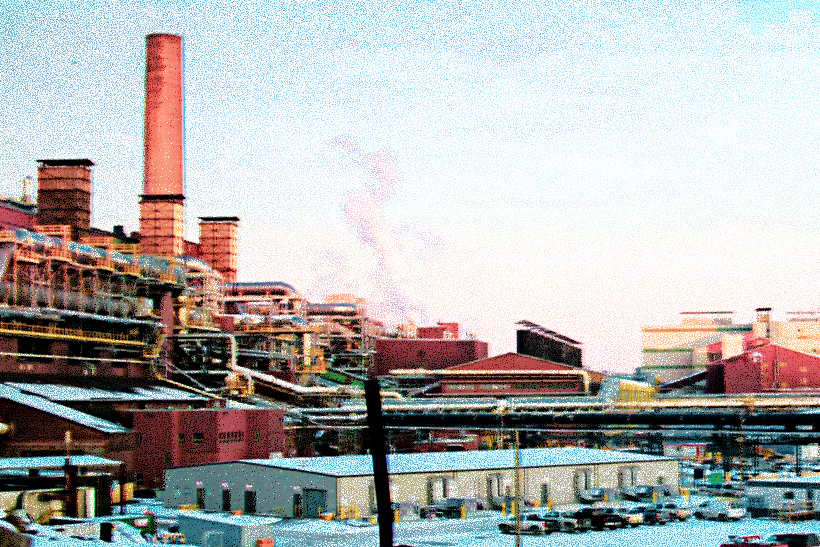
2,400 Vale workers are on strike at the Sudbury nickel mine, after they voted overwhelmingly to reject a contract that would have cut key health benefits for new hires.
Members of United Steelworkers Local 6500 at Vale—which took over Inco in 2006 and remains Sudbury’s largest employer—rejected the company’s offer by 70 per cent on Monday. The rejected contract would have cut over-the-counter drug coverage for all workers hired after June 1, 2021. The contract would also have closed new hires off from “retiree benefit eligibility” for its group hospital service and insurance plans.
The previous collective agreement covered the cost of semi-private rooms for any hospitalized worker. The agreement also provided workers with life insurance, non-occupational accident insurance and “dismemberment insurance” coverage—the latter paid $20,000 for one lost arm, foot, eye or hand and $40,000 for both.
Vale reported a $4.2 billion profit and a 94 per cent increase in revenues last year. But the company is still demanding its future hires accept these benefit cuts. These clawbacks would clearly be bad for future members. But, more importantly, tiered health benefits—like tiered pensions—weaken solidarity within the union. This is a long-standing divide and conquer tactic.
Soon after the vote, Vale warned its shareholders the rejection came despite the bargaining committee’s unanimous support for the offer. Nevertheless, management assured shareholders the company had a “contingency plan” to “preserve the integrity” of its Sudbury operations.
The union local has a long history of winning gains through struggle. In the face of layoffs, cut backs and threats, Inco miners went on strike and waited the company out—from June, 1978 to September 1979. This was, at the time, the longest strike in Canadian history. But, remaining determined, the union won pay increases and full pensions, after 30 years of service, for all members.
Miner Dave Williams said of the 1978-79 strike, these gains were won because the local’s members stood their ground. “At the end of May, the bargaining committee came back and gave us an offer,” Williams told local news, “We told them to ‘Go back to Toronto and tell Inco that they kept us out all winter, and we’ll stay out all summer if we have to. Give us what we want.’ They went back to Toronto, and in a week they came back with what we wanted.”
Since then, management has persistently worked to destroy these and other past gains. In 2009, the company’s layoffs and pension cuts once again drove workers to strike. The company bolstered its attacks with scabs in its smelter and mines and anti-union private security forces—to secure injunctions and criminal charges against striking workers. In the lead up, one former executive told the Globe: “They just want to break the union. They want to completely hit the reset button on the entire labour situation and the agreements that have been put in place in the past.”
This isn’t an isolated phenomenon. Across the country, from Nestlé, to Coca Cola, to Fenner Dunlop and elsewhere, employers are taking advantage of the present crisis to push workers to accept cutbacks. Sudbury’s mineworkers have a history of struggling against such attacks, mobilizing communities and standing up for themselves.
Reviving past, militant traditions is the only way to protect past gains. The labour movement can and must organize the broadest-possible campaign of support for Vale workers.
Victory to the Vale workers!
No to tiered benefits!

